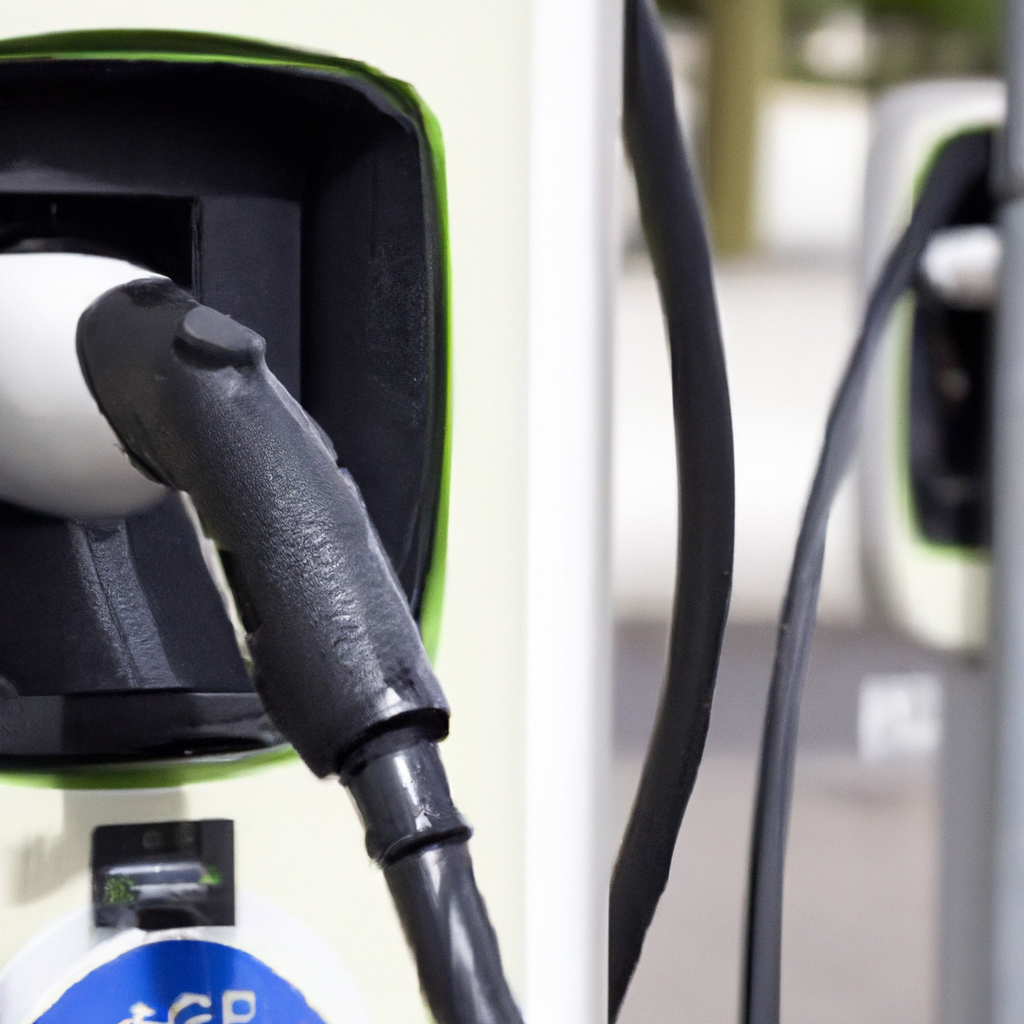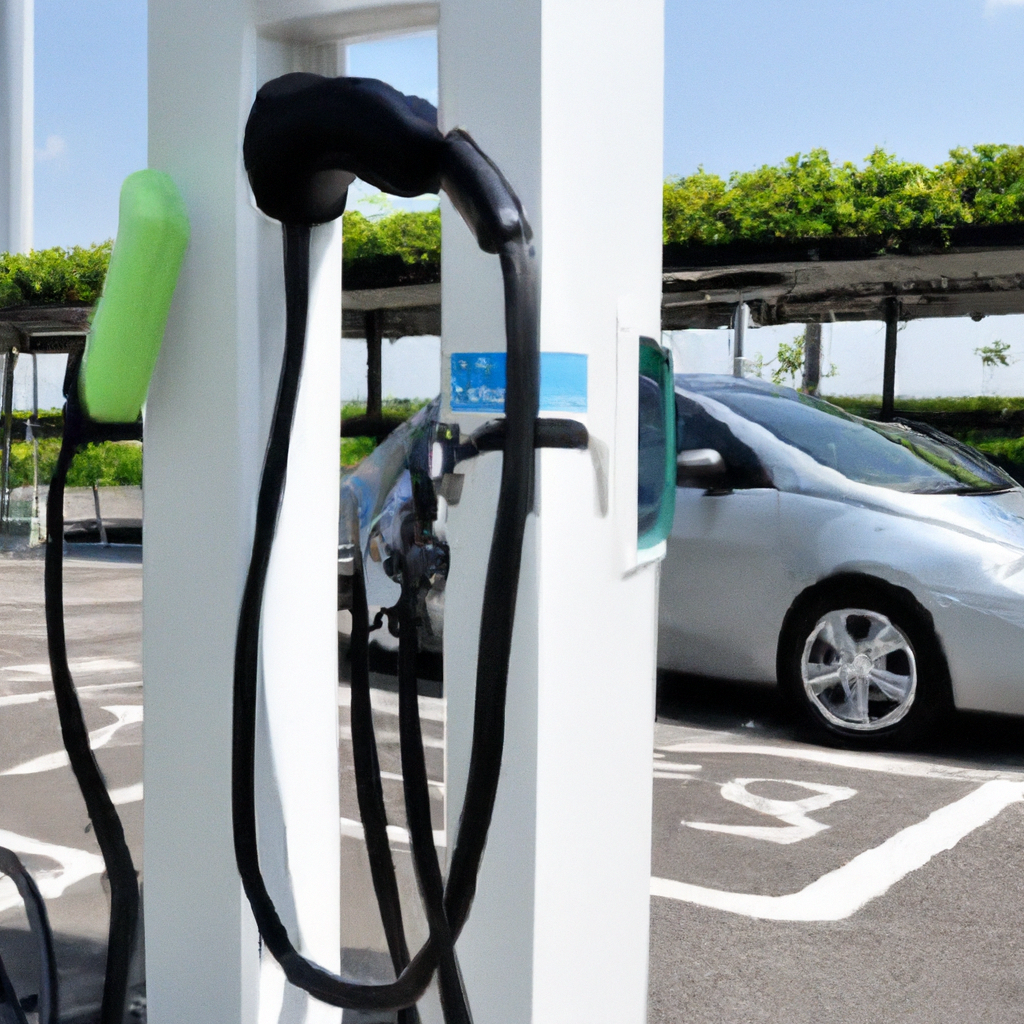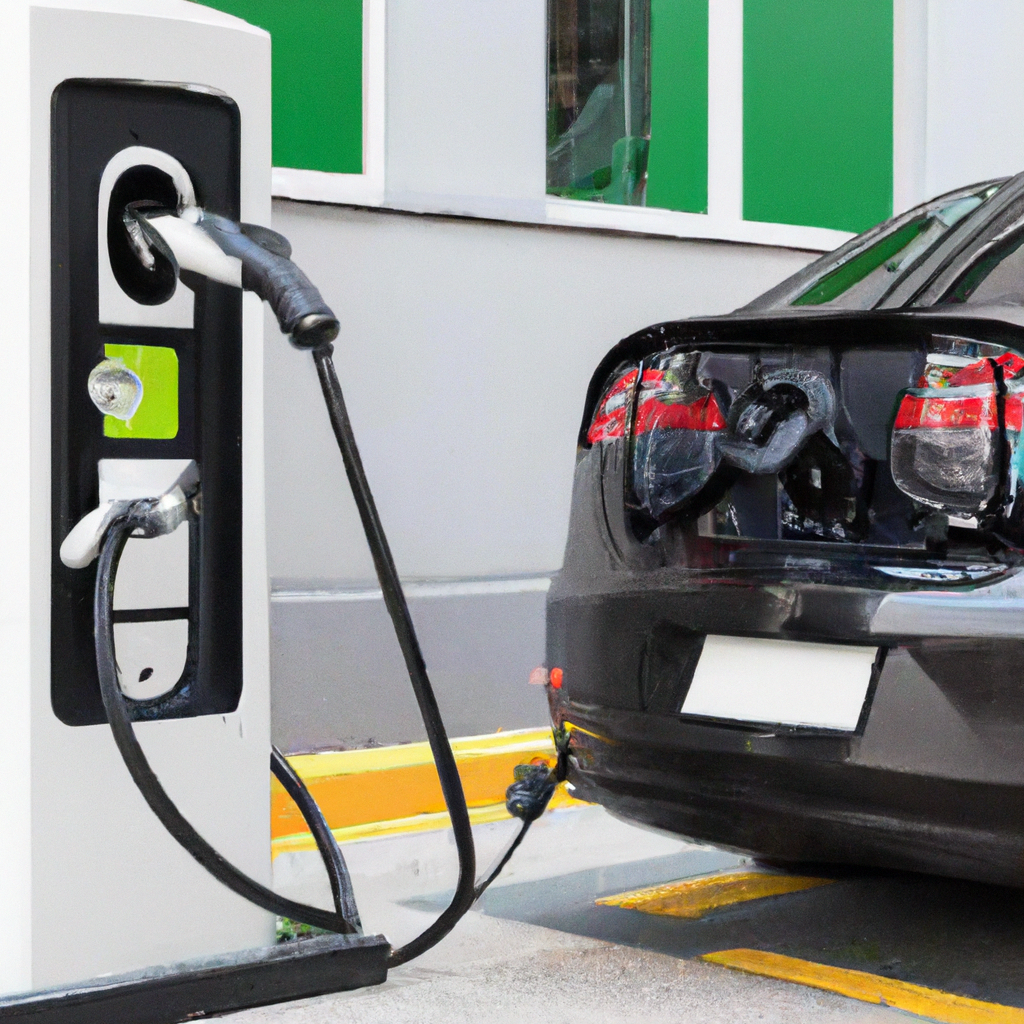What Is The Role Of Private Companies In Building EV Charging Networks In Malaysia?
October 24, 2023 | by Jacob Kang

Are you curious about the role of private companies in building EV charging networks in Malaysia? As an expert in EV chargers, it’s fascinating to delve into this topic. Private companies play a crucial role in expanding the electric vehicle charging infrastructure, paving the way for increased adoption of EVs in Malaysia. By investing in the development and installation of charging stations, private companies are actively contributing to the growth of the EV market and addressing the infrastructure challenges that hinder widespread EV adoption. Let’s take a closer look at how these companies are driving forward the EV revolution in Malaysia.

Importance of EV Charging Networks in Malaysia
Malaysia is rapidly embracing electric vehicles (EVs) as a sustainable and eco-friendly transportation option. With the growing number of EVs on the roads, the need for a robust charging infrastructure becomes crucial. This article highlights the importance of EV charging networks in Malaysia and explores the various factors that contribute to their development and success.
Benefits of EV Charging Networks
EV charging networks play a significant role in promoting the adoption of EVs in Malaysia. They provide convenient and accessible charging options for EV owners, eliminating range anxiety and making long-distance travel more feasible. By investing in a comprehensive charging network, Malaysia can significantly increase the uptake of EVs among the general public, reducing greenhouse gas emissions and improving air quality.
Additionally, EV charging networks offer numerous benefits to businesses and property owners. Installing charging stations at commercial buildings and retail outlets not only attracts EV owners but also enhances their overall experience. This, in turn, boosts customer loyalty and drives traffic to businesses that provide charging facilities.
Increasing Demand for EV Charging Infrastructure
As the popularity of EVs continues to rise, the demand for adequate charging infrastructure is increasing rapidly. Private companies are stepping up to meet this demand by investing in EV charging infrastructure and collaborating with government agencies to build and expand charging networks nationwide.
The partnership between private companies and the government is crucial in ensuring the efficient and timely development of EV charging infrastructure. By working together, they can leverage their respective expertise and resources to overcome challenges such as high installation costs and regulatory barriers.
Private Companies Leading the Way
Private companies are at the forefront of the EV charging revolution in Malaysia. They are making substantial investments in charging infrastructure to support the widespread adoption of EVs. These companies understand the importance of a reliable charging network in encouraging people to switch to electric vehicles and are actively working towards its development.

Investment in EV Charging Infrastructure
Private companies are investing heavily in EV charging infrastructure to meet the increasing demand. They are strategically identifying locations for charging stations, considering factors such as high traffic areas, residential clusters, and public transportation hubs. By installing charging stations in these areas, private companies ensure that EV owners have convenient access to charging facilities whenever they need them.
Moreover, private companies are integrating advanced technologies into their charging infrastructure. Smart charging solutions that enable remote monitoring and management of charging stations are being implemented to enhance user experience and optimize energy usage. These technologies not only streamline the charging process but also provide valuable data for evaluating the performance and efficiency of the charging network.
Collaboration with Government Agencies
Private companies are actively collaborating with government agencies to address regulatory challenges and accelerate the development of EV charging networks. These partnerships involve conducting feasibility studies, establishing technical standards, and sharing best practices to ensure the seamless integration of charging infrastructure across the country.
Through these collaborations, private companies and government agencies are working hand in hand to create a supportive environment for EVs. This includes developing policies and regulations that promote the installation of charging stations, offering incentives for companies to invest in charging infrastructure, and streamlining the permitting process for charging station installations.
Funding and Financial Incentives
Developing an extensive and reliable EV charging network requires substantial investment. Private companies are utilizing various funding options and leveraging financial incentives provided by the government to build and expand charging infrastructure in Malaysia.
Public-Private Partnerships
Public-private partnerships play a crucial role in securing funding for EV charging infrastructure projects. By pooling together resources and expertise, private companies and government agencies can access larger funding opportunities and share financial risks. These partnerships not only facilitate the growth of charging networks but also allow for greater coordination and collaboration between the public and private sectors.

Tax Incentives and Grants
The Malaysian government provides tax incentives and grants to encourage private companies to invest in EV charging infrastructure. These incentives not only reduce the upfront costs of installing charging stations but also provide ongoing financial support for their operation and maintenance. By offering such incentives, the government promotes private sector involvement in EV charging network development, enabling the rapid expansion of the charging infrastructure.
Innovation and Technological Advancements
As the EV industry continues to evolve, private companies are driving innovation and technological advancements in charging solutions. They are focused on developing smart charging solutions and integrating renewable energy sources into the charging infrastructure to enhance efficiency and sustainability.
Smart Charging Solutions
Private companies are investing in the development of smart charging solutions that optimize the charging process and enable better management of the charging network. These solutions leverage advanced technologies such as IoT connectivity and data analytics to monitor charging stations’ status, manage electricity loads, and provide real-time information to EV owners. This ensures that charging stations are utilized efficiently, minimizes waiting times, and maximizes the overall user experience.
Integration of Renewable Energy
Private companies recognize the importance of sustainability in the transition to electric mobility. They are actively working towards integrating renewable energy sources into the charging infrastructure. By leveraging solar or wind power, charging stations can operate using clean energy, further reducing greenhouse gas emissions associated with the charging process.

Network Coverage and Accessibility
Broad network coverage and easy accessibility are crucial elements of a successful EV charging infrastructure. Private companies are committed to expanding charging networks across major cities and ensuring that charging stations are strategically located for maximum convenience.
Expansion across Major Cities
Private companies are working towards expanding charging networks beyond major cities to provide adequate coverage throughout Malaysia. By identifying and investing in key locations, they aim to establish a network of charging stations that allows EV owners to find a charging point within a reasonable distance, ensuring their mobility needs are met.
Enabling Long-Distance Travel
An essential aspect of a well-developed EV charging network is the ability to support long-distance travel. Private companies are establishing fast-charging stations along major highways and intercity routes, enabling EV owners to embark on longer journeys with ease. This infrastructure expansion enhances the practicality and viability of EVs, making them a feasible option for both short and long trips.
Role of Electric Vehicle Manufacturers
Electric vehicle manufacturers play a vital role in supporting the development of charging infrastructure. They recognize that a robust charging network is essential to promote the adoption of EVs and create a positive ownership experience for customers.

Supporting Charging Infrastructure Development
Electric vehicle manufacturers collaborate with private companies and government agencies to develop and expand the charging infrastructure. They provide technical expertise and resources to ensure that charging stations are compatible with their vehicles, promoting interoperability and ease of use.
Incorporating Charging Solutions in Vehicles
Electric vehicle manufacturers are incorporating charging solutions directly into their vehicles to enhance user convenience. This includes features such as built-in charging cables and advanced charging systems that allow EV owners to connect to various types of charging stations seamlessly. By integrating charging solutions into vehicles, manufacturers simplify the charging process for customers and contribute to the overall growth of the EV ecosystem.
Partnerships with Property Developers and Businesses
To enhance the accessibility and convenience of EV charging networks, private companies are forging partnerships with property developers and businesses. These partnerships focus on the installation of charging stations at commercial buildings and integrating charging infrastructure with retail outlets and parking facilities.
Installation of Charging Stations at Commercial Buildings
By installing charging stations at commercial buildings, private companies create charging hubs within urban areas, making it convenient for EV owners to charge their vehicles while attending to other activities. This integration of charging infrastructure with existing commercial properties encourages EV adoption and supports sustainable transportation within urban centers.
Integration with Retail Outlets and Parking Facilities
Private companies are collaborating with retailers and parking facility providers to integrate charging infrastructure into their premises. This partnership allows EV owners to charge their vehicles while shopping or accessing other services. The presence of charging stations at retail outlets and parking facilities enhances customer experience, attracts EV owners, and promotes a sustainable lifestyle.
Standardization and Interoperability
Standardization and interoperability are essential factors in ensuring the smooth functioning of EV charging networks. Private companies are actively involved in establishing common protocols and ensuring the compatibility of charging infrastructure to simplify the charging process for EV owners.
Establishing Common Protocols
Private companies collaborate with industry stakeholders to develop common protocols and standards for EV charging infrastructure. These protocols ensure that charging stations from different manufacturers or operators can communicate seamlessly with electric vehicles, facilitating a consistent and hassle-free charging experience.
Ensuring Compatibility of Charging Infrastructure
Private companies work towards ensuring that charging stations are compatible with different types of electric vehicles and adhere to international standards. This compatibility allows EV owners to charge their vehicles at any charging station, regardless of the brand or service provider. By achieving interoperability, private companies make EV charging more accessible and convenient, further encouraging EV adoption.
Maintenance and Monitoring of Charging Networks
Maintaining the reliability and performance of EV charging networks is crucial for their long-term success. Private companies take on the responsibility of regular maintenance and monitoring to ensure that charging stations are in optimal condition and provide a seamless charging experience.
Regular Maintenance and Repairs
Private companies have established maintenance programs to ensure the proper upkeep of charging stations. Regular maintenance and repairs address any issues promptly and minimize downtime. These programs also include routine inspections, replacing worn-out components, and upgrading charging stations to accommodate emerging technologies.
Monitoring Usage and Performance
Private companies utilize advanced monitoring systems to track the usage and performance of charging stations. This data helps identify patterns and trends, optimize charging network operations, and plan for future expansion. By monitoring the charging network’s usage and performance, private companies can ensure that charging stations are working efficiently and address any capacity concerns or bottlenecks proactively.
Education and Awareness Campaigns
Promoting the benefits of EVs and charging infrastructure is essential to drive public acceptance and adoption. Private companies take the lead in organizing education and awareness campaigns that highlight the advantages of EVs and address common concerns and misconceptions.
Promoting Benefits of EVs and Charging Infrastructure
Private companies engage in public outreach activities to educate individuals about the advantages of EVs and the availability of charging infrastructure. These campaigns emphasize the environmental benefits, cost savings, and convenience associated with electric vehicles. By raising awareness and dispelling myths, private companies encourage more people to consider adopting EVs as their primary mode of transportation.
Addressing Common Concerns and Misconceptions
Private companies play a significant role in addressing common concerns and misconceptions about EVs and charging infrastructure. These include concerns regarding vehicle range, charging times, and the availability of charging stations. By providing accurate information and showcasing the progress made in charging infrastructure development, private companies help alleviate these concerns and build trust among potential EV owners.
In conclusion, private companies in Malaysia are playing a crucial role in building and expanding EV charging networks. By investing in charging infrastructure, collaborating with government agencies, and incorporating innovative solutions, they are driving the transition to electric mobility. Through their efforts, EVs are becoming more accessible, convenient, and sustainable, benefiting both individuals and the environment. The establishment of a reliable and widespread charging network is vital to accelerate the adoption of EVs in Malaysia and shape a cleaner and greener future for transportation.
RELATED POSTS
View all


